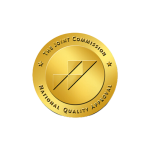What You'll Learn:
- Understanding Self-Medicating: Using substances to alleviate emotional or physical pain without professional guidance.
- Root Causes: Often stems from untreated mental disorders, trauma, or stress.
- Effects: While it may offer temporary relief, it can lead to dependency, worsened mental health symptoms, and physical health problems.
Understanding the Lure of Self-Medication
We all seek comfort during challenging times. For some, this comfort comes in the form of self-medicating behaviors. Whether it's turning to alcohol after a stressful day, relying on prescription drugs for relief, or seeking solace in illicit substances, the dangers of self-medication are undeniable. However, realizing you're caught in this cycle is the first step towards change.
What is Self-Medicating?
Self-medicating involves using drugs, alcohol, or other substances to manage emotional or physical pain without the guidance of a healthcare professional.
Common Self-Medication Examples:
- Consuming alcohol after a hard day.
- Using painkillers not prescribed to you.
- Increasing medication dosage without the doctor's consent.
The Causes of Self-Medicating
Self-medication is a complex behavior influenced by various factors. Many individuals struggle with untreated or undiagnosed mental health disorders, such as depression, anxiety, post-traumatic stress disorder (PTSD), or bipolar disorder. In the absence of proper therapeutic intervention, some people turn to drugs or alcohol to manage or numb their emotions, attempting to self-regulate. Chronic pain, whether due to injury, surgery, or long-term conditions like arthritis, can be debilitating. Some individuals might resort to prescription painkillers not prescribed to them or increase their dosage without consultation, seeking immediate relief. High levels of stress, traumatic events, or unresolved past traumas can lead people to seek an escape. Substances can momentarily offer this escape, creating a temporary buffer from harsh realities. Being in environments where substance use is frequent and normalized can influence individuals to self-medicate. This is often seen in settings where alcohol or recreational drug use is a regular part of social interactions.
The Effects of Self-Medicating
Over time, regular and increasing use of a substance can lead to physical dependence and addiction. This means the body becomes reliant on the substance to function, leading to withdrawal symptoms when not consumed. Chronic use of certain substances, like alcohol, can lead to liver damage, kidney failure, and other organ-related issues. Similarly, the misuse of painkillers can result in liver problems, especially when combined with other medications or alcohol. Certain drugs, when smoked or inhaled, can lead to respiratory issues, including chronic bronchitis and lung diseases. Using medication beyond prescribed limits or combining multiple substances can result in an overdose, a potentially fatal event.
How to Stop Self-Medicating: 3 Strategies to Consider
The first step in addressing any challenge is recognizing its presence. Understand and accept that you might be self-medicating. This acceptance creates a foundation for change.
1. Seek Professional Support
- Therapists and Counselors: They can help uncover the root causes of your self-medicating behaviors and provide coping strategies.
- Addiction Specialists: If addiction has developed, specialists can provide intervention and recovery guidance.
Professionals offer resources, therapies, and guidance tailored to your needs. Their expertise can guide you through the journey of recovery.
2. Develop Healthy Coping Mechanisms
Replace the impulse to self-medicate with healthier alternatives like physical activity or exercise. Becoming one with the outdoors and practicing mindfulness. Or engaging in activities that you love that you may have stopped doing before because of your addiction. Understanding the dangers and repercussions of self-medicating can deter continued behavior. It's not just about the immediate relief but the long-term consequences.
3. Build a Support System
Lean on loved ones or consider joining support groups. Sharing your experiences and listening to others can offer perspective and encouragement. Recognize what events or emotions prompt you to self-medicate. By identifying these triggers, you can develop strategies to cope without turning to substances.
The Risks of Self-Medicating Depression and Anxiety
It's not uncommon for individuals to self-medicate for anxiety or depression. However, these choices can exacerbate the condition instead of offering genuine relief. Alcohol, for instance, is a depressant. While it might offer temporary calmness, it can deepen depression over time. Mixing multiple substances or combining drugs with prescribed medications can lead to harmful interactions. This is especially dangerous for those on antidepressants or anti-anxiety medications, as certain drug combinations can lead to life-threatening conditions like serotonin syndrome. Without professional guidance on dosage and potential side effects, individuals run the risk of overdosing, which can be fatal.
If you suspect your self-medicating behaviors relate to untreated mental health issues, seeking professional guidance is paramount. There are various therapeutic options available, from counseling to medication, that can provide lasting relief.
Taking the First Step Towards Recovery
Embarking on the journey to end self-medicating behaviors can feel daunting. Yet, with the right resources and support, a healthier, substance-free life is attainable.
If you or someone you know struggles with self-medication and is seeking support, please reach out to American Recovery at 866-484-2502. Our dedicated professionals are ready to assist, offering expert guidance tailored to your unique needs. Your well-being is our top priority. It's time to reclaim control and begin the journey towards a brighter, healthier future.


